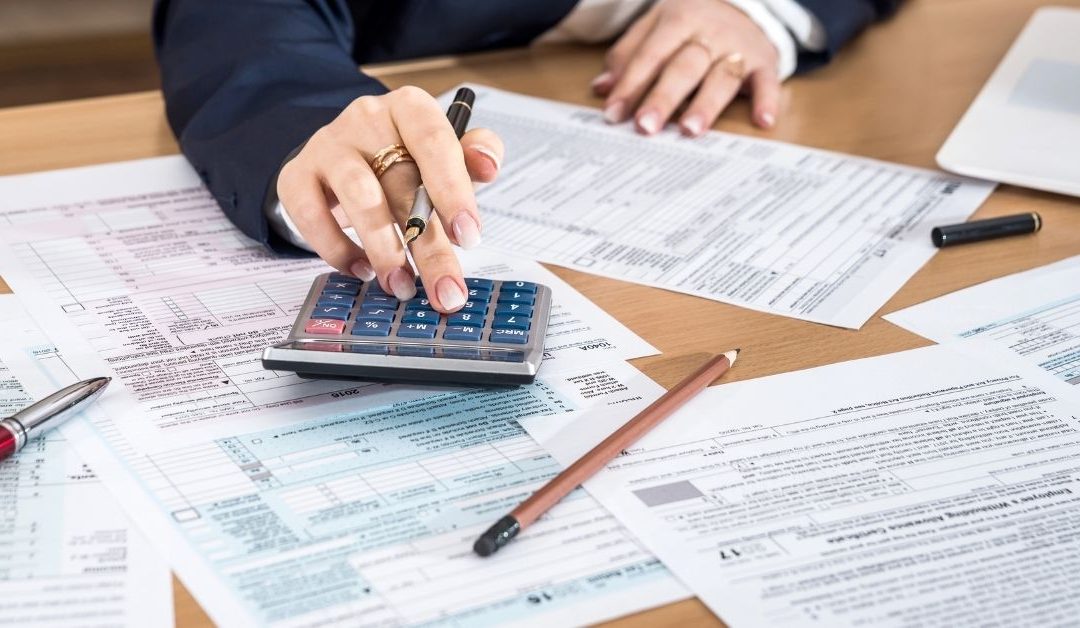As the year comes to an end, we can look forward to schedules filled with holiday parties, time off to spend with loved ones, and finding ways to circle back on projects in the new year. One project that will be especially important for small business owners is preparing for tax season.
Some of the tasks take time but developing good habits regarding your taxes can potentially save you some cash. Many tax planning moves that can help lower your taxes owed may need to be made before the end of the current year. With this in mind, we’ve outlined a few end of year tax tips that you can do to prepare for the tax year ahead.
- Review deductions, including the home-office deduction. The COVID pandemic caused many to embrace the work-from-home life, and for sole proprietors, single-member LLC business owners, and gig workers, the home office deduction could mean saving hundreds of dollars (or more). If you’re unsure, check with a tax professional to see if you qualify and what information is needed to claim the deduction.
- Catch up on the previous quarter’s financials and prepare bookkeeping ahead of tax time. You may be able to better plan for the final quarter by taking a look at the first 3 quarters of the year or last year’s fourth quarter. Taking the extra time to update your books before signing off for the holidays will also make the preparations feel easier in the new year and help determine if you need to adjust your fourth quarter 2021 estimated tax payment.
- For cash basis taxpayers, be proactive with your tax planning. You may want to consider deferring or accelerating income based on your expected tax bracket for 2022 or accelerating your expenses. For example, those who may fall into a lower tax bracket next year could benefit from deferring some income or moving some deductions up to this year’s filing. Since each business owner and business has unique needs, working with a tax planning professional will help map out a strategy that can maximize benefits.
- Consider making large year-end investments. Purchasing new equipment or upgrading at the end of the year can increase the overall tax deductions included for 2021. Note that the equipment must be placed in service by December 31, 2021, to qualify for a deduction. Also, it is important to consider how the investment will improve the business in the long term before spending. An investment may mean tax savings, but it is still money being spent.
- Review fixed assets already purchased during the year to see if claiming first-year bonus depreciation makes sense. If you acquired new assets this year, be sure to check with your tax professional or review the IRS guidelines to expense the cost of the property or equipment.
- Review your business tax structure. Based on the past year, does it make sense to change how your business is taxed? For example, there may be tax benefits for an LLC or partnership to elect to be taxed as a corporation or an S-corporation. Generally, an election to change tax status has to be made in the first 75 days of the tax year, so it is good to review the books now to see if it makes sense to make the change in the first months of 2022. If you’re unsure, talk with your accountant to see if it is in your best interest to shift to a new tax business structure.
Consider this process your year-end review as a small business. Consider the changes you have implemented over the past year, and reflect on how your business has (or has not) benefited. This time not only allows you to prepare for the upcoming tax season, but also gives you designated time to reflect on where your business is, and more importantly, where it’s going.
As always, if you have questions on these end of year tax tips or would like one of our tax professionals to assist you and your business, please reach out to us. We’re here to help your business operate efficiently during tax season and at all times in between.


Recent Comments